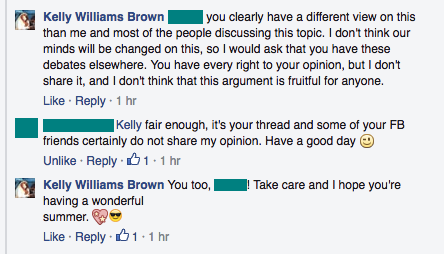As I write this, there has been an escalation of white supremacist activity in the US, and the generally difficult political climate in both the US and the UK has not really become less difficult than when I wrote Part 1. Part 1 is still relevant and deals with how to make decisions and make time for political activism in a sustainable way using the principles priorities, boundaries, and slack. I also encourage you to give higher priority to basic self-care: sleep, exercise, good food. The situation may be urgent but it is not an emergency. It will require sustained action.
I concluded with this, which I want to return to now:
Your teaching and your research and writing are just as important today as they were yesterday. The fact that there are concerted attempts to silence or diminish the value of the arts and humanities (in particular) or academia (in general) does not mean they have no value. In fact, it may indicate that they are so valuable they are feared in some quarters. Even if you struggle to articulate why what you do is important in ways that your neighbours understand, trust that it is important. Keep doing it. (me, Juggling in dystopian times, Part 1)
And then this week, I read this in Kelly Diels newsletter.
This is not the time for those of us who are committed to justice and doing The Work to pull back or be less visible.
This is not the time for us to voluntarily make less money or invite deprivation and struggle into our businesses and payrolls.
This is the time for us to do MORE of what we were already doing.
As a collective, we need to amass even more influence and power and money.
We need to train and influence more people.
“You will not replace us.”
WATCH US DO EXACTLY THAT.
(Kelly Diels, What to do about this world, 13 August 2017)
Kelly’s audience is entrepreneurs, hence the reference to business and payrolls, but this also applies to you. The reason white supremacists are marching on university campuses, and governments and political organizations are attacking the humanities in general, particular university policies, or “expertise”, is because the work you do threatens their power. You may not see or intend your work as threatening. But even the much discussed and rarely specified “critical thinking” is a political threat to the status quo. Asking questions is dangerous. You ask questions for a living.
Your work is important
The detailed scholarship you do provides more nuanced understandings of (aspects of) the world we live in. It asks new questions about things we think we already know. It extends what we already know in important ways. That is, in and of itself, important work. There is a lot of work to be done. Your work is likely a tiny part of that work but it is no less important for that.
When you teach, you give your students a more nuanced understanding of the world (or at least some part of it). You provide them with additional knowledge and you provide them with new ways of looking at the world. You suggest different questions. You bring ideas together in ways they may never have thought of.
And you show them how to do that with their own questions. You teach them how to research. You teach them how to make arguments and support them with evidence. You teach them how to evaluate evidence, ask questions, find better evidence or better explanatory frameworks and arguments.
As Diels says, “This is the time for us to do MORE of what we were already doing.”
You don’t have to do something different.
Trust your judgement
Specific political events make you feel like the haters are right, that you really are doing “useless” research and teaching. You may feel like your time would be better spent out there on the front lines. Or studying something more directly relevant.
This is not true. You do not know what it is about your work that will be relevant.
As bizarre as our political discussion has become in recent times, it’s still unusual to see the history of Roman Britain on the frontline of debate.” (Jack Hunger, 11 August 2017, Prospect Magazine)
The ancient historians and classicists did not know that their particular knowledge of ethnicity in Roman Britain would be what was needed to engage in active political debate at the beginning of August 2017. And yet, this is exactly what happened in the UK. It was all about how Roman Britain was represented in a children’s animated series, with accusations of political correctness and bias. ( See also Mary Beard in the TLS and John-Mark Philo in The Conversation There are links to other pieces in some of those, too.)
Most ancient historians and classicists (not to mention the geneticists who study ancient DNA) are not motivated by the desire to intervene in political debates and argue with guys who troll people on social media for fun or bring torches to rallies. They are mostly the kind of people that think learning Latin and Ancient Greek is an interesting challenge, and who like hanging out in archives and thinking deeply about historical puzzles. They are the kind of humanities academics that are often held up as irrelevant. They teach degree programs that are derided as useless.
Yes, you research and teach the particular subjects you do because of a personal interest. You are a big geek, interested in stuff that you can’t discuss at the dinner table unless you’ve invited your fellow geeks (i.e. your colleagues) over for dinner. You are kind of lucky that someone is paying you a salary to teach and research this stuff, especially when people are starving. (I hope it is clear that I do not see the term “geek” as an insult. It merely describes someone with a very deep interest in a very specific topic.)
And yet, your research and your teaching are important, in ways it may be difficult to specify. You are contributing to the advancement of knowledge. You are training a new generation. Trust this. You are not “weird” or “out of touch”. Your work is not “irrelevant” or “useless”.
There will be occasions when you need to defend your research, your discipline, or your programme in clear ways to specific audiences. But try not to make defensiveness your standard posture. Defensiveness gives power to those who dismiss your work. (Calling something “irrelevant” or “useless” is not criticism.) Doing your research and teaching confidently and being the particular kind of scholar you are confidently is a political act.
Modelling what it means to value knowledge
Your students hear those statements about how “useless” their degree is and have chosen to do it anyway. They have chosen this degree because they think it is interesting. Whether you like it or not, you are a person in authority who confirms that their geeky interests are worthwhile. They need you to push them beyond whatever it was that got them interested in this topic to begin with and discover the wonder and fascination of the scholarly work that has captured your interest enough to make it your career.
They can’t all become professors, nor would they all want to, so it is also helpful to highlight the skills they are learning as they delve into this particular field of knowledge and how those skills might be transferred to more mundane contemporary concerns. It is also worth helping them determine what exactly they enjoy about this work in terms that help them see those qualities in other work they might do after they finish their degree. It is worth pointing out the qualities you see in them and their work that will be valued by those who do not understand or value the content of their degree.
And when an opportunity presents itself, or if a good example exists, it is helpful to point out how this detailed specific knowledge can help them engage in debates about current events, popular culture, or whatever. You don’t have to avoid that stuff, but that’s not what makes your work important. It is not the “relevance” or “transferrable” skills that make what you teach valuable.
In a political climate that devalues your work, it is a political act to treat your knowledge and skills as valuable. Be an example to your students of the value of knowledge.
What would it mean to do MORE of what you are already doing?
I’m going to throw out a couple of ideas here but I do not in any way assume this is all this could mean. This is what occurs to me today, partly influenced by some of the things people are writing about as they prepare courses for a new academic year in the wake of a particularly tough weekend. Please add other ideas or share what you have decided to do in the comments as inspiration for others.
If you are reading the news and (metaphorically) shaking your fists at the lack of knowledge of something that you actually teach, are you sure you are teaching it? Are you teaching it effectively? Is the current situation making you realize that you had implicit learning objectives that you might want to make explicit? Once you’ve made them explicit (at least to yourself), review your reading lists and learning activities and evaluate whether you are actually helping students achieve those objectives.
This is particularly true for those critical thinking skills. Academia tends to value knowledge over skills. It’s as if we expect students to either come with all the skills they need, or to pick them up by osmosis. What is your reaction to current events (or what people say about current events) telling you about the kinds of skills you want your students to acquire through engagement with the material you present? And how can you support them in acquiring those skills? What would evidence of those skills look like, even if they still disagree with you?
Are there topics you avoid when teaching because they will be contentious? Can you evaluate the risks of including this material and figure out ways of mitigating the risks so that your course better meets your own scholarly values for what coverage of this topic looks like? You need to keep yourself and your students safe, but you also need to stretch a bit out of your comfort zone to extend the bounds of safety.
Ask similar questions about your research. It may be hard to disentangle your feelings of self-doubt about your research and writing (if you have any), but it is worth noticing and making an effort. Don’t change track out of defensiveness, but do reflect on your research priorities. Have you been playing it safe? Is there a topic you’ve been avoiding? Are there questions you’d really like to investigate but you’ve been holding back from because it seems too risky? What might that look like?
Keep an eye out for your opportunity to educate a broader public
Another obvious way to do more of what you are already doing is to expand your audience. This should not be taken lightly. Mary Beard (who took the lead in the Roman Britain debate) has clearly made a personal decision to be more public about her work and is actively seeking out opportunities to speak to a wider audience. She has taken a lot of abuse, so we’d all understand if you aren’t ready for that. This may also be something you don’t want to do right now, even if you decide to do it later.
Even if you don’t actively seek more public outlets for your research, you can respond when public debates would be enhanced by your knowledge. Make sure your bio on the university website is up to date, and makes it clear what you are qualified to speak on. Talk to the media and communications office (not the academic department, the PR people for the university) so they know what you are willing to do and which topics you can speak to. Ask if they offer media training or other support. Getting media training will help you understand how media works and how to prepare your material for this kind of audience.
There will be opportunities to support your more publicly oriented peers when they face negative coverage, at least with comments on news articles, shares and further comments on various social media platforms. There will be opportunities for you to pitch an article that adds your specific knowledge to a debate that has taken off in a public forum (as Jennifer Raff did when people questioned the evidence and brought up genetics in the Roman Britain debate).
You may also find opportunities to speak to a wider audience without going quite as wide as national media and Twitter. Local libraries, bookstores, and museums often organize talks and other events that enable interested members of the public to learn more about their own particular geeky pursuits. There are members of the public who want to learn more and discuss this topic without bringing out all the haters. Opening up spaces for them to speak confidently about their interest in “useless” topics is a political act.
This is a long game.
Politics is not more important than your work. Politics is not less important than you work. Look at what is possible for you now. Identify your priorities. Set boundaries. Go do what you do.
Related posts:
Juggling in dystopian times, Part 1










